The PSC Library is open M-W 8am-7:00pm and Th-F 8am-4:30pm. PSC Librarians are available through the "Chat Now" button or via email at librarians@prairiestate.edu.

We have research guides to help your students with their coursework. If we are missing a guide you think the students would benefit from, email Bill.
A large part of the research journey is vetting sources. This is a learned skill and we know our students struggle. Our Evaluating Sources research guide can help students to think about how they vet their sources and make selections. This guide covers popular, trade, and scholarly sources since they are different.
The library is launching a regular book club which will meet twice during the spring semester. For Black History Month, we will read Between the World and Me by Ta-Nehisi Coates. This club is open to everyone: faculty, staff, and students. While we hope people will finish the book, please come even if you didn’t. Here are the meeting details:
February Book Club Meeting
Tuesday, February 9, 2021
12:00-1:00PM
Meeting over Google Meet: meet.google.com/ujp-fhed-tph
By phone: +1 617-675-4444, PIN: 442 265 225 0514#
The book: Between the World and Me by Ta-Nehisi Coates
This month we would like to talk about algorithm literacy and filter bubbles. If you are rusty on your Algebra II, an algorithm is:
“Mathematics and Computing. A procedure or set of rules used in calculation and problem-solving; (in later use spec.) a precisely defined set of mathematical or logical operations for the performance of a particular task.”
"algorithm, n." OED Online, Oxford University Press, December 2020, www.oed.com/view/Entry/4959. Accessed 14 January 2021.
In layman’s terms, an algorithm is a set of instructions for solving a problem. These operations are typically performed by a computer, but not always. In practice, algorithms are answers to your Google searches. Algorithms rank your search results and decide which content to display based on information about you or your previous behavior. (If you are curious, you can read a little bit about Google’s approach to ranking your searches here.) Anyone who has compared Google results with another person knows that your personal results vary, and this is where the trouble begins.
If someone in a rural part of the United States types into Google: “Climate change is…” they will get one set of results based on previous searches, ZIP code, everything in their Gmail account, their purchasing patterns, news consumption, and more.
When I type in “Climate change is…” My first result is NASA. Your individual search may be vastly different. This creates a filter bubble in which a 35-year-old, white, male truck driver from Tulsa, OK gets different search results than a 35-year old, white, male food truck driver in Portland, OR. Both are in the same demographic and have similar jobs, but they don’t share the same bubble, furthering their differing worldviews.
It gets worse on social media. I never liked the phrase, “You are what you eat,” but I think it is true that “you are what social media you consume.” Not everyone understands that your social media feed isn’t showing your friends’ posts in real time. This began “right around 2016. That was the year Twitter and Instagram joined Facebook and YouTube in the algorithmic future. Ruled by robots programmed to keep our attention as long as possible, they promoted stuff we'd most likely tap, share or heart -- and buried everything else. Bye-bye, feeds that showed everything and everyone we followed in an unending, chronologically ordered river.” (Dow Jones Institutional News). Ever since, your feed has been listed in the order most advantageous to getting clicks. With each click the algorithm learns a little more about your interests, allowing it to feed you content that is more to your liking. The more you like, the more it knows, and the more the content can be tailored. The result is reinforcing our own bias, rather than challenging it.
The first step to understanding algorithm literacy is understanding that algorithms inform everything you see on the internet. This means that you will probably be fed websites that already confirm what you believe. Your own biases are reinforced as you are paired with likeminded individuals, giving the impression that nobody else exists. You have to recognize the problem to fix it.
The second step is understanding that if a product is free, you are the product. You exchange connections on social media for your personal information. For most of us, this is a tradeoff we can live with, but for others it isn’t. Deleting your account is one option- and anecdotally, everyone I know who did it is happy with their decision. Another is removing those apps from your phone to curtail your use and give them less information to use. Another strategy is to opt out of personalized ads. This video details how to do this on Facebook. Pick and choose which options work best for you.
Another option is to be mindful about your search engine choice. You can always try using a search engine like DuckDuckGo, which doesn’t track you. While not a perfect solution, it might be worth trying for a month and seeing what you think.
Big tech is powerful and their algorithms are not transparent to those outside the company. Like other industries, big tech has a monopoly. While the United States is friendly to monopolies, it doesn’t help that many of our elected officials don’t understand social media. On the other hand, you are internet savvy, and can contact your elected officials to complain.
Practice what you preach and be careful about what you post on social media. Be mindful of your own filter bubbles. If you want to learn more, check out the Podcast Rabbit Hole about the role of YouTube in the creation of the Alt-Right. Talk with your students about algorithm literacy and how their Google search results can be skewed. Invite a librarian to class to walk them through library resources. Our resources don't use personal information in their search algorithms.
The internet can be a force for good, but only if it is regulated, and we are savvy consumers. I found this Research Guide useful in learning more about algorithmic literacy and many of my tips were taken from it.
"Social-Media Algorithms Rule how we See the World. Good Luck Trying to Stop them." Dow Jones Institutional News, Jan 17, 2021. ProQuest, https://search.proquest.com/wire-feeds/social-media-algorithms-rule-how-we-see-world/docview/2478384146/se-2?accountid=39643.
As part of Black History Month, we are going to share fantasy and science fiction eBooks by black authors.
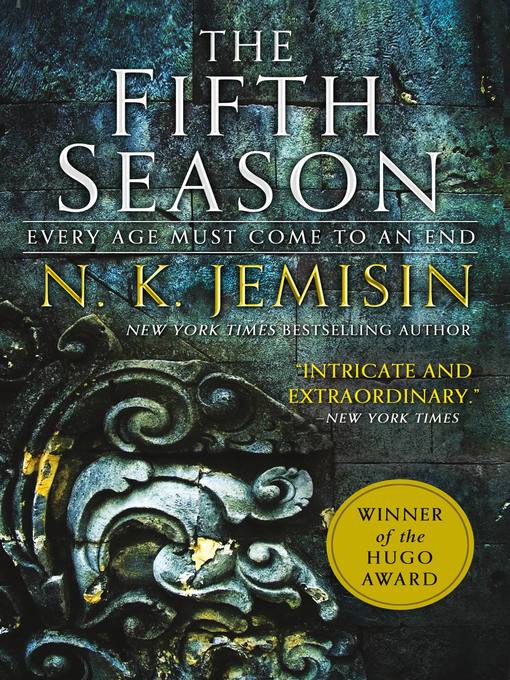 The Fifth SeasonN. K. Jemisin |
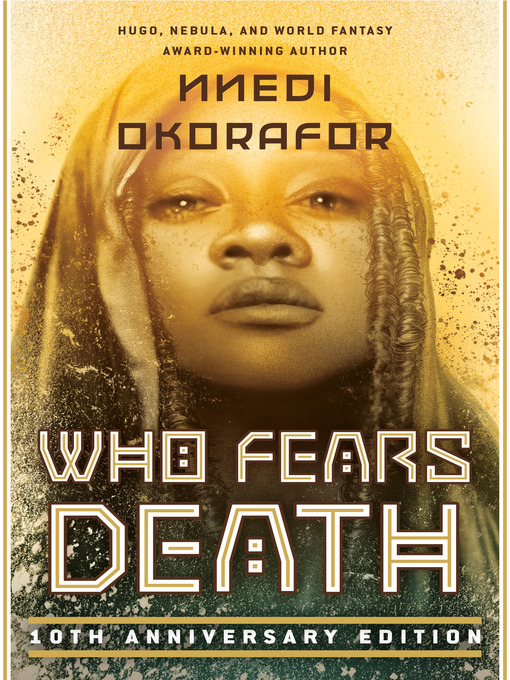 Who Fears Death?Nnedi Okorafor |
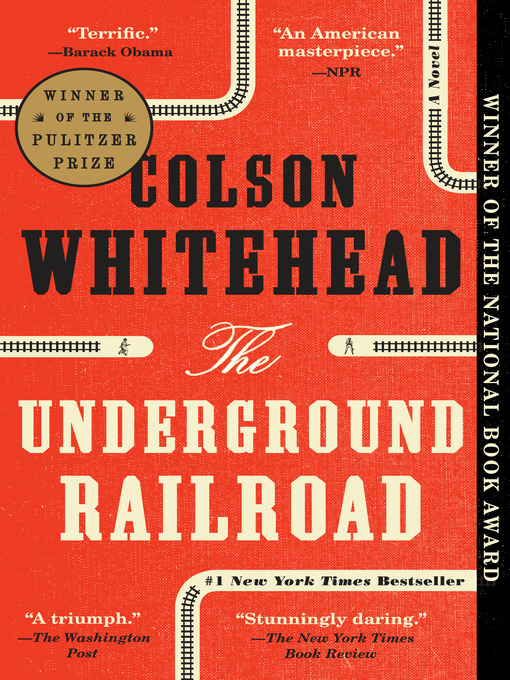 The Underground RailroadColson Whitehead |
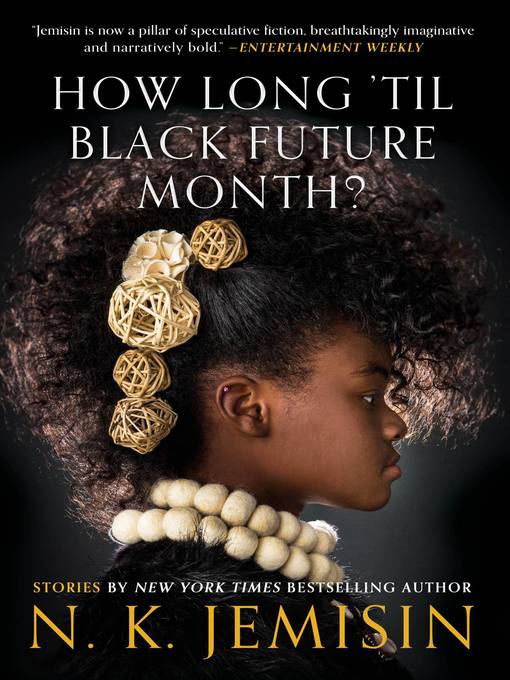 How Long 'til Black Future Month?N. K. Jemisin |
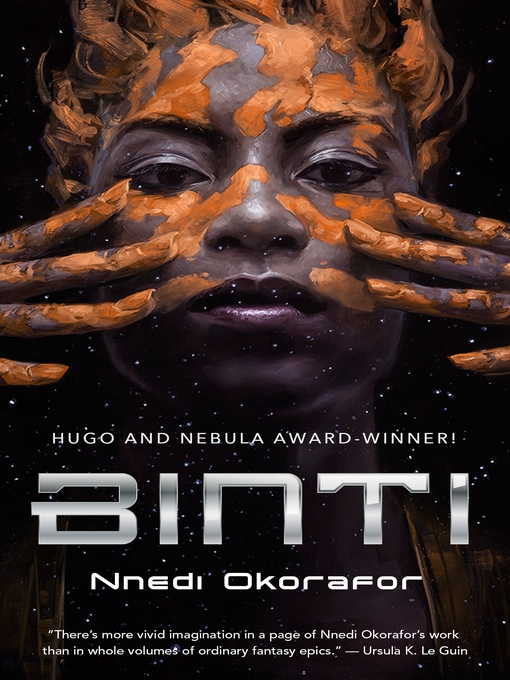 BintiNnedi Okorafor |
 KindredOctavia E. Butler |
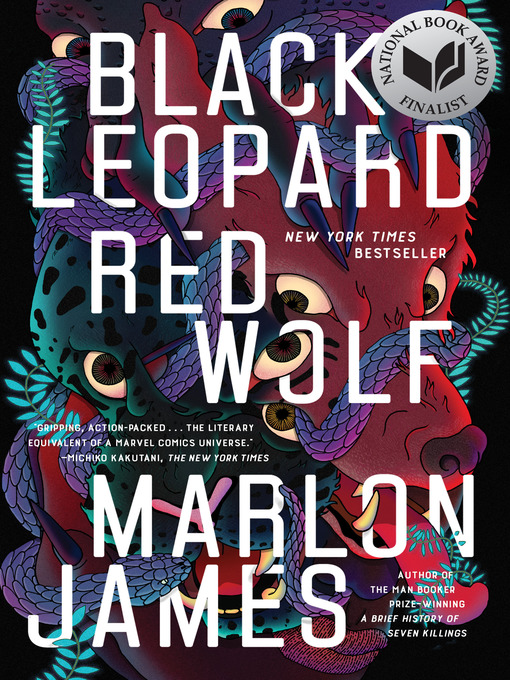 Black Leopard, Red WolfMarlon James |
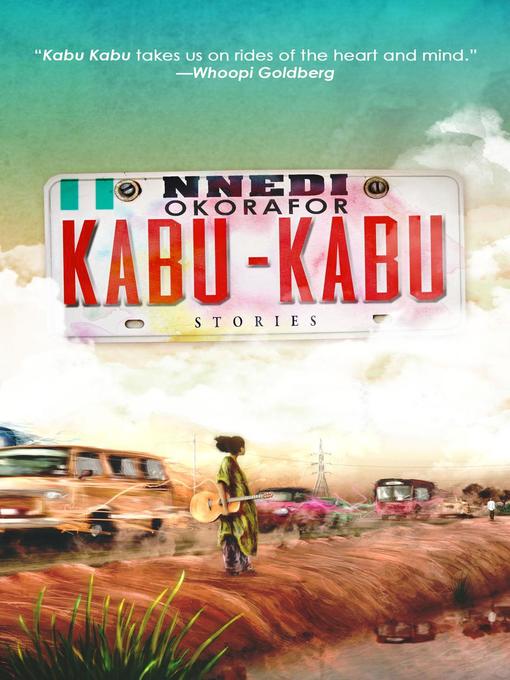 Kabu-KabuNnedi Okorafor |